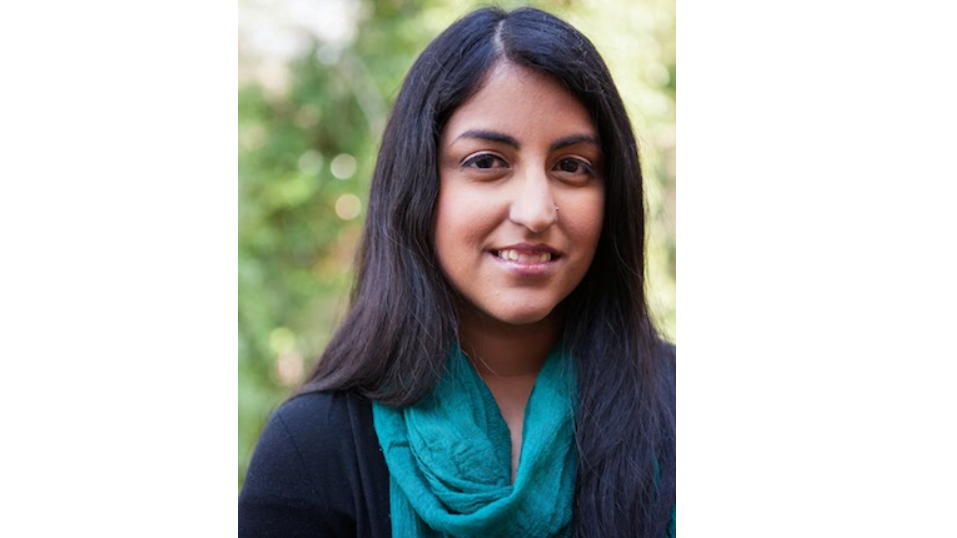I didn’t mean to misplace my spirituality. I just lost it while searching for my identity. After a tumultuous marriage and divorce, all I wanted to do was scrape the remnants of the relationship from my being. In Pashto, a girl’s reputation is like a mirror, a chip or crack makes it look ugly. Thinking that my divorce was a mar on my honor, I wanted to not be me: the 24-year old girl married and divorced while her friends had just graduated. I wanted to be someone else, someone without a chip on her mirror.
However, in trying to erase my past, I no longer knew who I was. After my divorce, I found myself sitting in my parents’ family room not laughing at jokes I once found funny. I no longer felt a bond with my friends. The talk of the latest clothes meant nothing. I realized the world had somehow passed me by. I was stuck in a place no one else existed.
I was changed because of my life experiences. Even my mother seemed so young in her thoughts. Her own fairytale of a marriage set a precedent my dysfunctional marriage had never lived up to.
Tired of trying to fit in, I stopped being someone else and just started being. I began to wander like the Persian philosopher Ghazali. He left the contentment of his home in search of himself. Of course, I could never be so noble. Spending years in solitude with only God was what fortified my soul throughout my unhappy marriage. I went back to spending time in isolation, and I found it comforting.
Being alone gave me time to reflect and grow internally. I realized I had been tested in ways many were not. This was difficult to accept, but with prayer, I found myself understanding that I was different. This difference made me unique — a quality I started to like.
Eventually, I met my husband. My husband quenched a thirst I didn’t know I had. He looked past my broken exterior and saw a soul he called beautiful. For him, and for his love, I am thankful.
I thought I was done crying. I took for granted that I passed my “Test” and wouldn’t be tested again. What a fool I was.
Last year, I was given the gift of motherhood only to have it taken away too soon. Before Ibrahim died, I was oblivious to how seriously ill he was. I ignored the blinking red lights on his monitors and the daily commotion surrounding his little bed in the ICN. My family reassured me often that God loved me and that my son would be fine. I even convinced my husband that we would be taking him home before long.
One evening, I fell asleep in my hospital room and dreamt of holding hundreds of balloons, so colorful — a gift from my husband. They slowly turned white and began to slip away from my fingers. It was my husband who touched my arm and held me close when I panicked. “Let them go, honey, don’t you see how beautiful they make the sky?”
I woke up alarmed. I couldn’t speak or breathe from sorrow. I prepared for my baby’s departure that day. Because of the mercy of my dream, I gave my son a dignified goodbye, with my husband by my side.
Losing Ibrahim shattered me. He was the baby I played mommy to when I was a little girl. He was supposed to be the happy ending to my sad story. But God was not the cosmic Santa Claus I thought he was. I wouldn’t be punished or rewarded on earth for things I did. Mortality was a fact and people I loved would die. They didn’t belong to me or anyone else.
Just as I had given up, leaving my fate in God’s hands, I became pregnant soon after Ibrahim’s death. The new baby was due exactly on the first anniversary of Ibrahim’s passing. The following year, my second child, Musa, came into my barren lap filling it with love and drying my tears.
Without the many tests and trials of my life I would never know or appreciate the strength, the compassion, the love, the mortality, the mercy, and the miracles of God. I am humbled by the life God has woven for me and have no idea what to expect and no longer even try to guess.
The way Joseph’s scent made its way back to Jacob, I came back. I finally found God waiting where I had left Him and it wasn’t by changing who I was, but by embracing where I had been.
Sabina Khan-Ibarra is a freelance writer and editor, and her most recent work, Birth, Loss and In-Between appeared in the online magazine, In Culture Parent. Sabina regularly contributes to her blog, Ibrahim’s Tree, which focuses on dealing with loss–created after the loss of her infant son in 2011. She is currently writing her novel, Poppy Flower, based on her life growing up as a Pashtun American in the Bay Area. Sabina is also the co-editor and author for Hijabulous: Seeing the Veil through the Eyes of American Muslim Women. Sabina works as a Human Resources Manager and lives in Davis with her husband and son. This article was originally published on loveinshallah.com.
(Photo Credit: Rod Brazier)
















